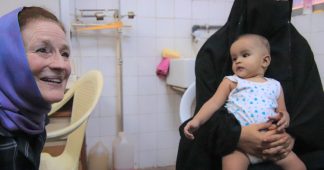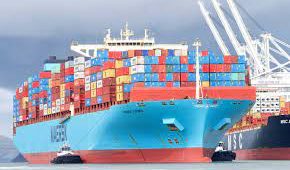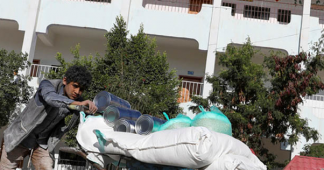As the UN receives less than a third of the humanitarian funds requested, Yemen faces a crippling reduction in vital wheat supplies due to the war in Ukraine
Chris True
Mar 19, 2022
A day after donor countries pledged less than a third of the $4.2bn requested by the United Nations in humanitarian assistance to Yemen over the next year, charities have warned of a “potential catastrophe”, amid fears of the impact of the war in Ukraine on Yemen’s wheat supply.
At an online donors’ conference on Wednesday, the UN received only $1.3bn in pledges for the war-torn country, at a time when funding had already begun drying up as the world turned its attention to the conflict in Ukraine.
Meanwhile, with Yemen importing more than 30 percent of its wheat from Russia and Ukraine, attention is now turning to the possible impact a disruption to wheat supplies will have on the already desperate situation in the country.
Russia’s invasion of its neighbour in February sent global wheat and fuel prices soaring, just months after cash-strapped UN agencies cut food aid to eight million Yemenis.
“You have a perfect storm gathering on the horizon,” Philippe Duamelle, Yemen representative for Unicef, told the Thomson Reuters Foundation on Friday.
“We need more, not less. But we have reached a level where we need to start scaling down. This is insane. This is just insane.”
In a press release on Thursday, following the conference, Rama Hansraj, Save the Children’s country director in Yemen, said: “Leading up to the pledging conference this month, hospitals in Yemen were forced to a near halt due to a lack of fuel, putting children’s lives at risk.
“Now, the country is bracing for the potential catastrophic impact the war in Ukraine is expected to have on its wheat supply.”
‘Families don’t know how to get their next meal’
Speaking to Middle East Eye from Marib, Abdulwasea Mohammed, Oxfam Yemen’s advocacy, campaigns and media manager, said: “I am extremely concerned – even before the Ukraine conflict, the figures in the last hunger forecast predicted more people would fall into worsening hunger in 2022. People have run out of resources and ways to cope.
“We’re seeing more and more cases of malnutrition among the people we help.”
“Yemen imports 95 percent of its needs from abroad, including wheat and other food commodities,” Basheer Al Selwi, the spokesperson for the International Committee of the Red Cross (ICRC) in Yemen, told MEE from Sanaa.
“The increase of the wheat price will add another layer of difficulty and burden to the life of the Yemeni people.
“Since the onset of the Ukraine conflict, we have seen the prices of food skyrocke by tmore than 150 percent. Millions of Yemen families don’t know how to get their next meal.”
World’s focus on Ukraine
More than 17 million people require food aid in Yemen, while that number could rise to 19 million in the second half of the year, UN bodies have said. Those experiencing emergency levels of hunger could reach 7.3 million by December.
As the situation has worsened, the war in Ukraine has shifted attention away from conflicts such as those in Yemen.
“It is essential that the world does not look away from the crisis in Yemen,” Mohammed told MEE. “As the world recovers from a global pandemic and grapples with multiple humanitarian crises, we are doing everything we can to maintain global awareness and remind donors that without the current levels of humanitarian aid the situation will deteriorate rapidly.”
Echoing those sentiments, Selwi said: “As the global attention shifts to other high-profile crises such as Ukraine, the world must not abandon the long-suffering people of Yemen.”
Addressing Wednesday’s pledging conference, David Beasley, head of the UN’s World Food Programme, said: “Don’t make us make decisions between taking food from the children in Ukraine to the children in Yemen.”
No pledges from Saudi Arabia and UAE
Saudi Arabia leads a western-backed military coalition that intervened in Yemen in 2015 to restore the government of President Abd Rabbuh Mansour Hadi, which was kicked out of power in the capital, Sanaa, by the Houthi rebels in 2014-15. The kingdom, along with its coalition partner the United Arab Emirates, did not announce any new pledges at Wednesday’s conference, although Riyadh’s King Salman Humanitarian Aid and Relief Centre said it would continue to support Yemen.
Among the 36 countries who did make pledges, the United States offered $585m, Britain pledged $115m and the European Union member states a total of $407m.
“We heard 36 donors pledge nearly $1.3bn for the humanitarian response,” the UN’s humanitarian chief Martin Griffiths said at the end of the meeting. “But let us be under no illusions: we hoped for more. And it is a disappointment that we weren’t able, as yet, to get pledges from some we thought we might hear from.
“We will be working hard to make sure that… we do stand in solidarity with the people of Yemen,” he added.
The failure to reach the $4.2bn target marked the sixth year that Yemen’s humanitarian response plan has not been fully funded.
Hopes for peace
The UN estimates that the war in Yemen had killed 377,000 people by the end of 2021. More than 150,000 of those deaths were a direct result of the armed conflict, while a greater proportion have died due to hunger and disease arising from the humanitarian crisis.
Earlier this week, the Houthis welcomed reports that the Gulf Cooperation Council was considering inviting the rebels and other Yemeni parties for consultations in Riyadh at the end of March, as part of an initiative aimed at backing UN-led efforts to end the conflict. However, the Houthis said they would only attend if the discussions were held in a neutral country.
“It is neither logical nor fair that the host of the talks is also the sponsor of war and blockade,” the rebels said in a statement via their official news agency.
“Today, we want to stress that only political efforts will resolve this desperate humanitarian situation and therefore must be intensified as humanitarian agencies cannot be expected to care for millions, subsidize the state and keep the economy from collapsing,” Selwi told MEE.
“We hope parties to the conflict in Yemen will sit together around the same table and find a situation to end the conflict.”
Mohammed said: “Peace is the key to resolving the multiple crises the conflict has inflicted on Yemeni people.
“I hope a swift agreement for a lasting peace can be reached so Yemenis can get on with rebuilding their lives and livelihoods.”
Meanwhile, during a whistlestop tour to Saudi Arabia on Wednesday, UK Prime Minister Boris Johnson was urged once again by rights groups to end Britain’s sale of arms to the kingdom and call on Riyadh to end the war in Yemen.
“I really hope that he [Johnson] has raised the [issue of the] misery in Yemen,” said Mohammed. “Over two-thirds of the population need humanitarian aid. As each year passes and conflict continues, the situation for Yemenis gets worse.”
Published at www.middleeasteye.net
We remind our readers that publication of articles on our site does not mean that we agree with what is written. Our policy is to publish anything which we consider of interest, so as to assist our readers in forming their opinions. Sometimes we even publish articles with which we totally disagree, since we believe it is important for our readers to be informed on as wide a spectrum of views as possible.











